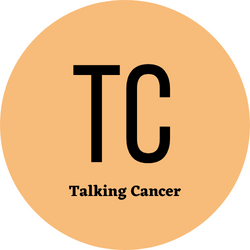Exploring Integrative Medicine and Alternative Therapies: Enhancing Health and Fitness Holistically
by siteadmin

In today’s fast-paced world, the pursuit of optimal health and fitness has led many individuals to explore integrative medicine and alternative therapies as complementary approaches to traditional healthcare practices. Integrative medicine combines conventional medical treatments with evidence-based complementary therapies, while alternative therapies encompass a diverse range of practices outside of mainstream medicine. By embracing a holistic approach that addresses the mind, body, and spirit, these modalities offer unique opportunities to enhance well-being and promote vitality. In this blog post, we’ll delve into the principles and benefits of integrative medicine and alternative therapies for health and fitness, exploring their potential to revolutionize the way we approach wellness.
Understanding Integrative Medicine:
Integrative medicine takes a comprehensive approach to healthcare, combining conventional medical treatments with complementary therapies that have been shown to be safe and effective. This approach acknowledges the interconnectedness of various aspects of health and wellness, recognizing that physical, emotional, and spiritual factors all play a role in an individual’s overall well-being. Integrative medicine emphasizes personalized care plans tailored to each individual’s unique needs and preferences, fostering a collaborative partnership between patients and healthcare providers.
Key Principles of Integrative Medicine:
- Whole-Person Care: Integrative medicine considers the whole person, addressing not only physical symptoms but also emotional, social, and spiritual aspects of health. Healthcare providers take into account factors such as lifestyle, nutrition, stress levels, and environmental influences when developing treatment plans.
- Empowerment and Self-Healing: Integrative medicine empowers individuals to take an active role in their own health and well-being. Patients are encouraged to explore various treatment options, participate in shared decision-making, and engage in self-care practices that support their overall health goals.
- Collaboration and Coordination: Integrative medicine emphasizes collaboration and coordination among healthcare providers from different disciplines. Practitioners work together to integrate conventional medical treatments with complementary therapies, ensuring a cohesive and comprehensive approach to patient care.
- Prevention and Wellness Promotion: Integrative medicine prioritizes preventive care and wellness promotion, aiming to address underlying imbalances and risk factors before they manifest as illness or disease. By focusing on lifestyle modifications, stress reduction, and health optimization, integrative medicine seeks to support long-term health and vitality.
Exploring Alternative Therapies:
Alternative therapies encompass a diverse range of healing modalities that fall outside the scope of conventional medicine. These therapies may include practices such as acupuncture, chiropractic care, herbal medicine, massage therapy, meditation, yoga, and energy healing. While some alternative therapies have ancient roots and cultural traditions, others have emerged more recently as innovative approaches to health and wellness. Alternative therapies often focus on restoring balance and harmony within the body, mind, and spirit, promoting natural healing processes and enhancing overall well-being.
Benefits of Integrative Medicine and Alternative Therapies for Health and Fitness:
- Holistic Approach to Wellness: Integrative medicine and alternative therapies offer a holistic approach to health and fitness, addressing the root causes of illness and promoting balance and harmony within the body.
- Personalized Care Plans: By considering each individual’s unique needs, preferences, and goals, integrative medicine and alternative therapies provide personalized care plans tailored to support optimal health and vitality.
- Enhanced Well-Being: Integrative medicine and alternative therapies can improve physical, emotional, and spiritual well-being, leading to reduced stress, improved mood, and increased resilience.
- Complementary Support: Integrative medicine and alternative therapies can complement conventional medical treatments, enhancing their effectiveness and minimizing side effects.
- Empowerment and Self-Care: Integrative medicine and alternative therapies empower individuals to take an active role in their own health and well-being, providing them with tools and strategies for self-care and empowerment.
Integrative medicine and alternative therapies offer innovative approaches to health and fitness that prioritize holistic well-being and empower individuals to take charge of their health journey. By integrating conventional medical treatments with evidence-based complementary therapies, these modalities provide personalized care plans that address the root causes of illness and promote balance and harmony within the body, mind, and spirit. As we continue to explore new avenues for enhancing health and vitality, integrative medicine and alternative therapies offer promising opportunities to revolutionize the way we approach wellness and embrace a holistic vision of health and fitness for all.
In today’s fast-paced world, the pursuit of optimal health and fitness has led many individuals to explore integrative medicine and alternative therapies as complementary approaches to traditional healthcare practices. Integrative medicine combines conventional medical treatments with evidence-based complementary therapies, while alternative therapies encompass a diverse range of practices outside of mainstream medicine. By embracing a…
Recent Posts
- A Stronger, More Comfortable, More Stable Walking Aid: Groundbreaking Features of the StrongArm Comfort Cane
- Sons of Monaco Painting Unveils the Ultimate Solution: Roll vs. Spray for Exterior Paint
- A Stronger, More Comfortable, More Stable Walking Aid: Groundbreaking Features of the StrongArm Comfort Cane
- Exploring Integrative Medicine and Alternative Therapies: Enhancing Health and Fitness Holistically
- Embracing Patient-Centered Care Models: Revolutionizing Health and Fitness
